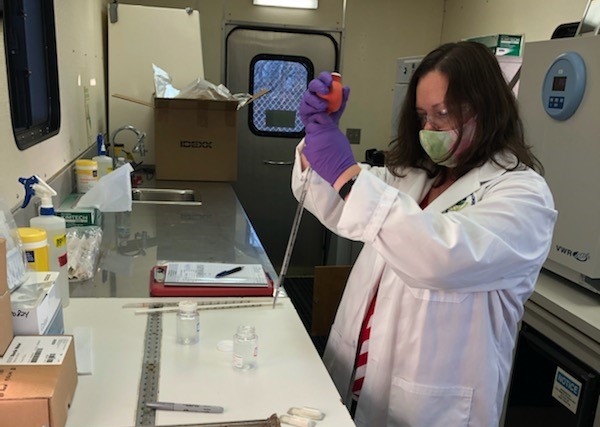EPA Deploys Mobile Labs to Work with Texas to Restore Drinking Water Systems
Published March 22, 2021

After the storm, drinking water systems were heavily impacted in the state, with many systems not operating at all or operating with restrictions such as boil water advisories and conservation measures. After Texas requested assistance from the Federal Emergency Management Agency (FEMA), EPA’s Regional Laboratory Network coordinated to determine which labs had the appropriate capabilities ready to support the response. EPA quickly deployed resources and staff from neighboring Regions 4 and 7 to communities in Texas (Region 6) to assist with the drinking water and wastewater system outages resulting from Winter Storm Uri.
Specifically, EPA dispatched three mobile drinking water labs from Kansas City, Kansas, (Region 7) and Athens, Georgia, (Region 4) into areas in San Antonio, Fort Worth, and Houston. The mobile labs assisted with bacteriological analysis of drinking water samples.
EPA also took necessary action to ensure Superfund sites were secure following the storm, to assist public drinking water systems with rapid assessments and analyses, and to seamlessly integrate emergency response activities with Texas, and other federal agencies.
In 2019, EPA’s Office of Research and Development became the National Program Manager (NPM) for Regional Laboratories. As NPM, ORD is responsible for budget alignment, strategic direction, and overall performance of EPA’s regional laboratories. EPA’s Laboratory Service and Applied Science Divisions provide strong and effective science supporting EPA’s mission. ORD salutes the extraordinary efforts of the Regions and the Regional Laboratory Network, which respond to environmental needs and emergencies both locally and nationally.
Learn More:
To learn more about EPA Labs visit: https://www.epa.gov/regionallabs.
To learn more about EPA’s Laboratory Enterprise, please visit: https://www.epa.gov/labs
